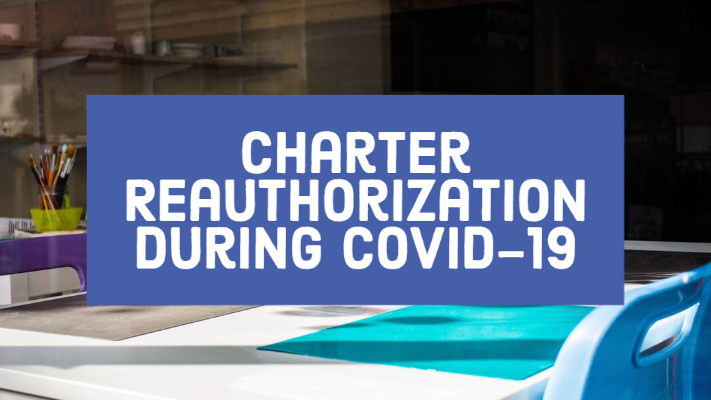COVID-19 has brought new challenges to most every aspect of life, and public education has not been spared. Schools have had to quickly adapt to their changing circumstances, whether due to restriction of in-person learning or the anticipated impacts to funding.
Charters schools are known for their innovation and their ability to be nimble. I have been extremely impressed and proud of our schools as they work creatively to provide their communities with high-quality education despite some new and challenging COVID-19-imposed realities.
As a charter authorizer, CSI has had to adapt its processes, too. Some of CSI’s departments have pivoted to better support schools in implementing remote learning. We have also started to adjust our authorization processes to consider the impacts of COVID-19, namely the pause in state assessments and potential limits to local assessments. For those of us who are deeply embedded in the charter sector, we know how critically important the renewal process is to schools and authorizers. Contract renewal is not automatic – it must be earned through strong academic results, financial viability, and operational effectiveness. Simply, the renewal process epitomizes the charter bargain regarding accountability and autonomy. A school must go through a renewal process at the end of its contract to determine if the school has earned a new contract.
The Standard Charter Renewal Process
The CSI Annual Review of Schools (CARS) is used to evaluate and accredit CSI schools annually based on academic, financial, and operational performance. The primary driver of the renewal evaluation is the CSI Annual Review of Schools.
In addition to the CARS report, the renewal narrative submitted by the school, board engagement, and site visit are used to add to the body of evidence when considering contract renewal.
Charter Renewal during COVID-19
However, the lack of state academic testing for the 2019-20 school year due to COVID-19 means that CSI does not have the usual data to complete its academic evaluation.
So how can we fairly evaluate and renew schools without this critical piece of information?
When tackling this issue, CSI turned to its values first. It was clear that as an authorizer, we needed to:
- Maintain transparency throughout the process,
- Continue our commitment to evidence-based decision-making,
- Ensure consistent expectations for schools, and
- Provide choice and agency for schools.
We also turned to other education partners to collaborate and brainstorm solutions. CSI staff worked with local and national authorizers to gain an external perspective.
After many deep discussions, the CSI staff has adjusted the renewal process as follows:
- Use a baseline renewal recommendation using academic data from the 2019 CARS report.
- If the baseline recommendation could be enhanced through the consideration of additional data from the 2019-20 school year, schools could participate in an expanded body of evidence review. (For example, schools can provide additional academic data from 2019-20 that could show or establish a positive trend.)
- Incorporate financial and organizational data from the 2020 CARS report.
- Emphasize performance contracts with milestones that do not use state assessment data or provide enough time for state testing to resume.
- Delay deadlines for submission of financial narrative from mid-June to July 31.
- Restructure site visits as needed.
The CSI Board approved these adjustments to the renewal process at its May Board Meeting. Ryan Marks, who leads our renewal process, is communicating with our renewal schools to discuss these adjustments over the coming weeks.
While we are in uncertain times, we continue to work hard to find ways to ensure accountability and transparency in our authorization processes for our schools. The renewal process was one of our top priorities to address due to the number of potential impacts. We will likely have similar discussions and updates to share about our annual CARS process as well.

